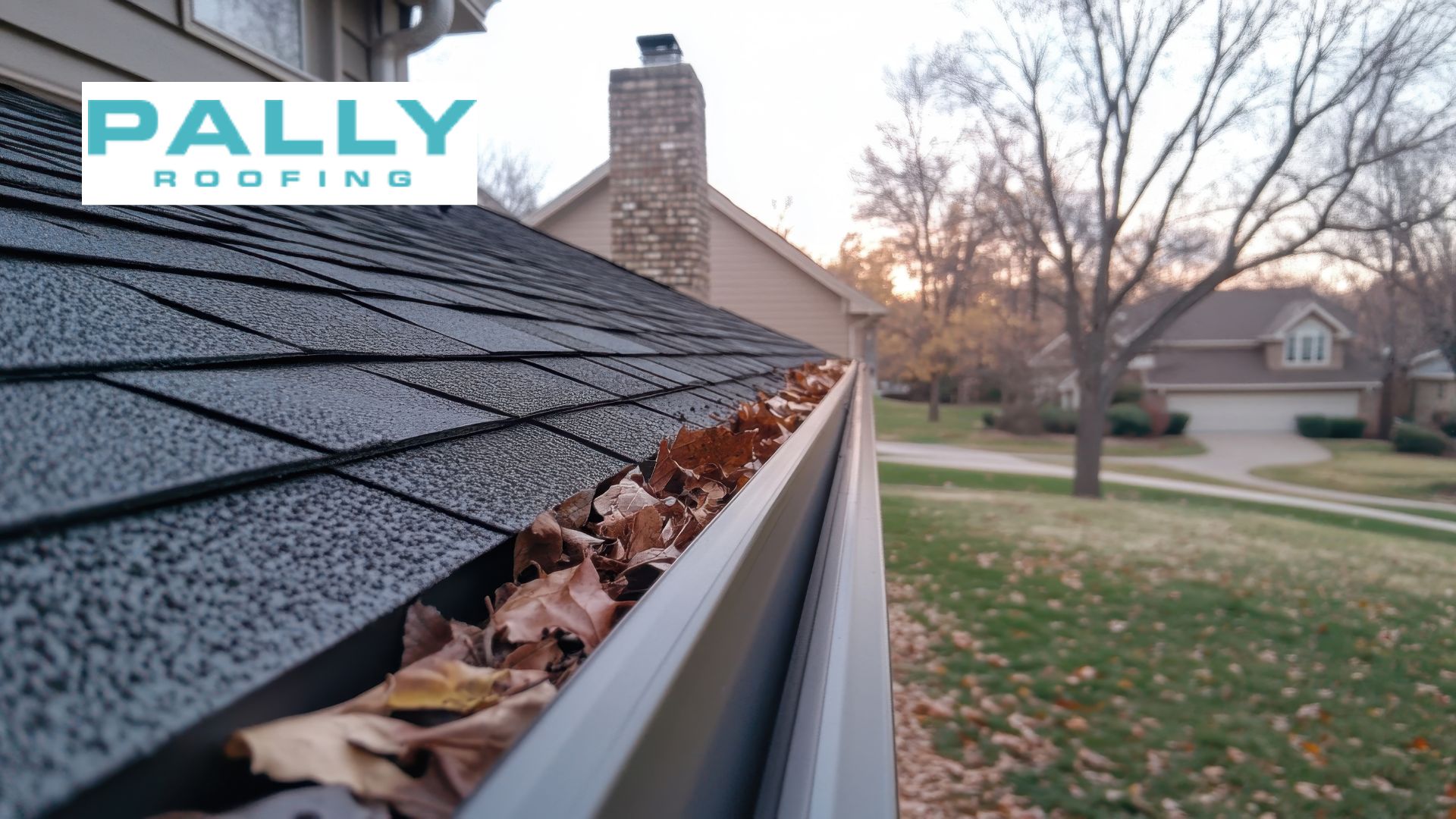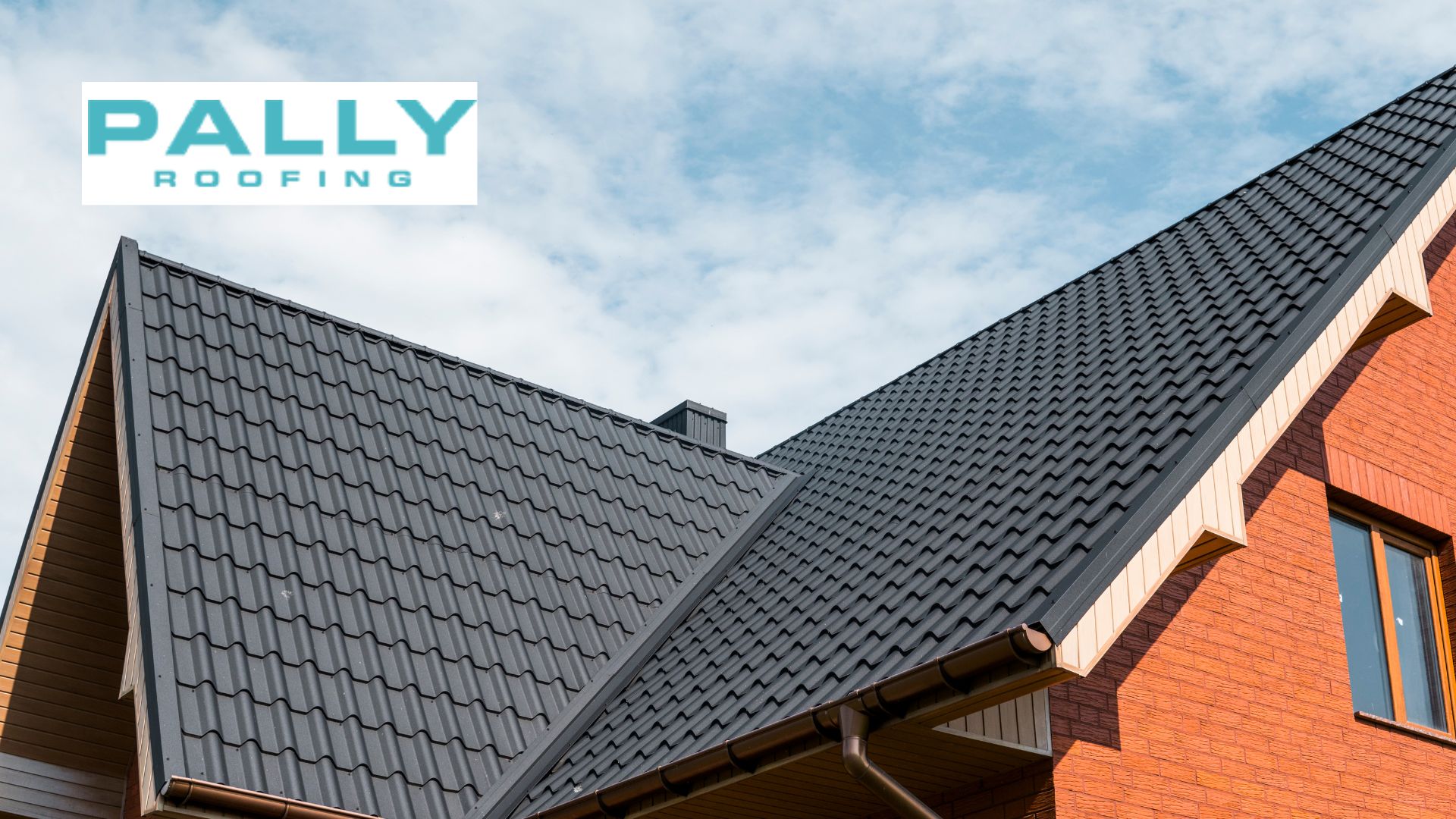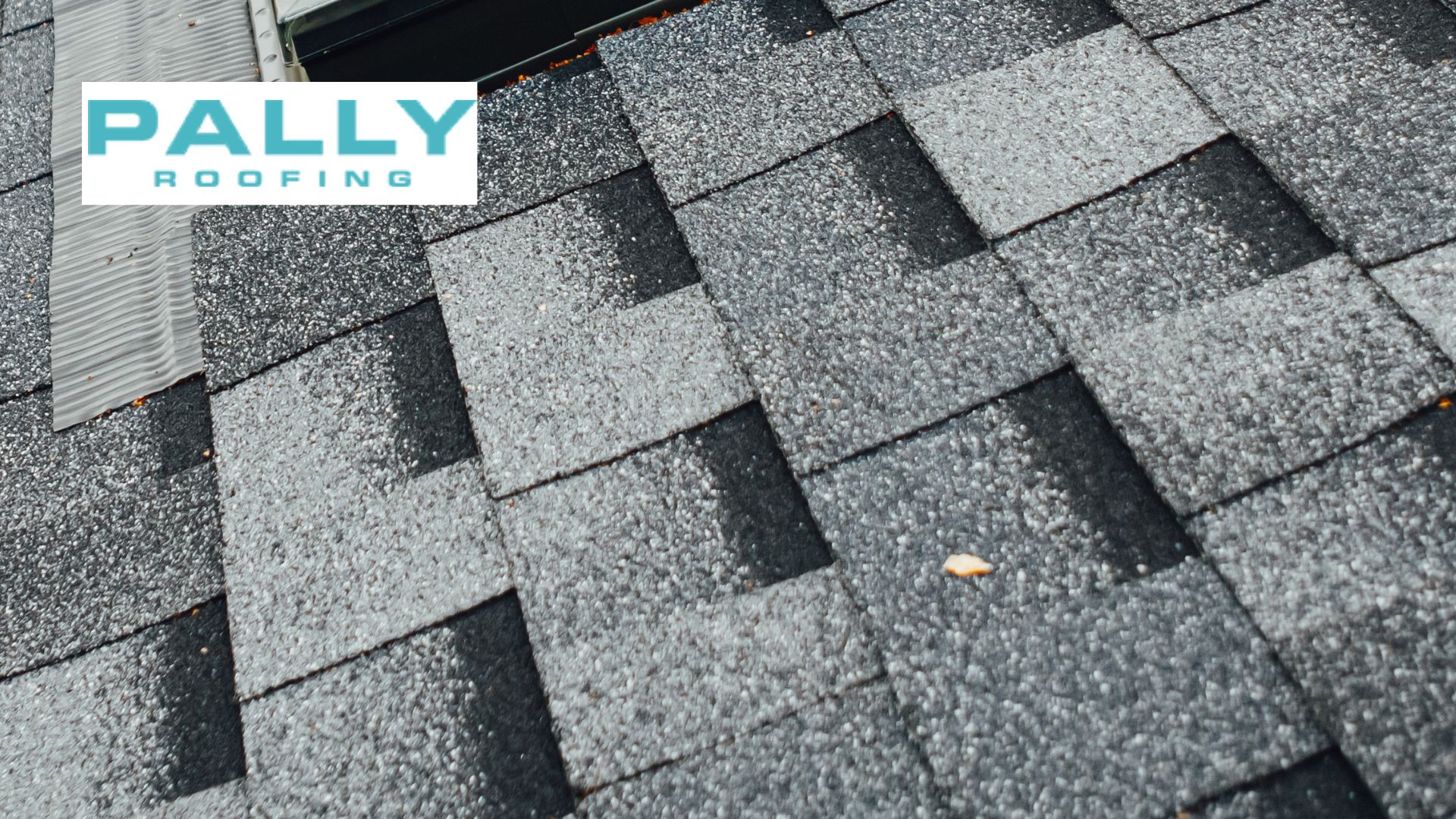Last updated on December 27th, 2024 at 09:46 am
Bitumen roofing is a versatile, durable solution for flat and low-slope applications. Its waterproof roofing capabilities make it a preferred choice for both residential homes and commercial roofing projects.
Table of Contents
This guide will cover the essentials of bitumen roofing, its advantages, and why property owners trust it in Garrettsville and nearby areas in Ohio.
Types of Bitumen Roofs
Bitumen roofs come in various styles, each designed to meet specific needs and applications. Here are the main types of bitumen roofs available:
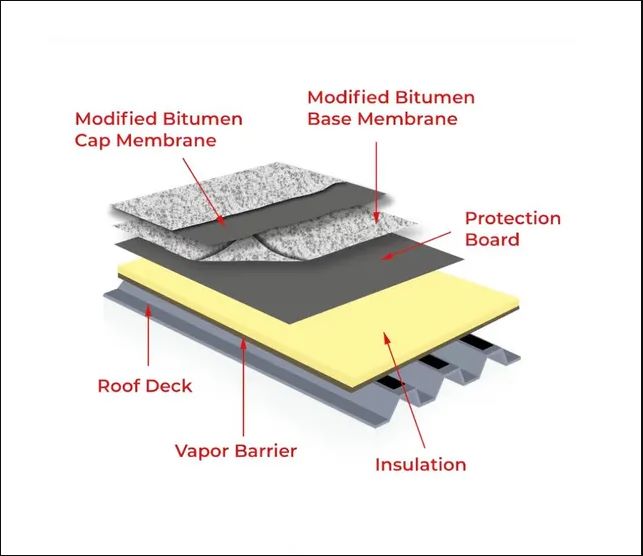
Source: hibuwebsites
Modified Bitumen Roofing (MBR):
- This technique combines asphalt with modifiers such as rubber and plastic, making it softer and more durable.
- It is particularly suitable for areas with high-temperature fluctuations, providing excellent weather resistance.
Asphalt Roll Roofing:
- Asphalt roll roofing is a traditional, flexible, and suitable alternative for smaller or less complex roofing projects.
- While providing the necessary protection, it is less durable than modified bitumen roofing.
Self-Adhesive Bitumen Roofing:
- This style features a pre-coated outer cover, making installation easy without additional covers or shelves.
These types of bitumen roofing cater to different requirements, from residential homes to commercial roofing properties, ensuring excellent waterproofing and durability in various applications. Discover the durability and benefits of asphalt shingle roofs for your home.
Benefits of Bitumen Roofing
- Durable roofing options: 20-30 years life with good maintenance.
- Weather Resistance: Withstands harsh weather conditions, from UV rays to heavy rain.
- Waterproof roofing: This provides a strong, waterproof seal.
- Cost-Effectiveness: An affordable choice among roofing materials.
- Low Maintenance: Reduces the need for frequent maintenance.
Maintenance of Bitumen Roofs
Regular inspections can extend lifespan:
- Roof maintenance: Check for cracks or holes after severe weather.
- Cleaning: Remove debris to improve drainage.
- Repairs: Handle minor damage immediately to prevent water contamination.
- Coating: Apply a protective coating periodically to increase UV protection.
Common Issues with Bitumen Roofing
Some issues also arise in sustainability:
- Blistering: Caused by trapped water.
- Cracking: This can occur due to large temperature changes.
- Pooling Water Can lead to leaks on flat roofing.
- UV Damage: Prolonged exposure can damage the product.
Cost Considerations for Bitumen Roofing
Factors affecting costs include:
- Roof Size: Larger roofs increase material and labor costs.
- Type of bitumen roofing: Modified bitumen roofing is more expensive than traditional asphalt roll roofing.
- Installation Complexity: More complex bitumen roof installation raises labor costs.
- Maintenance Costs: Compare coatings and routine inspections.
When to Choose Bitumen Roofing
Ideal for:
- Flat roofing or low-slope roofs due to waterproof roofing capabilities.
- Residential homes, especially those designed on a budget.
- Commercial roofing properties with large expanses need durable solutions.
Bitumen Roofing vs. Other Roofing Materials
When bitumen roofing is compared to other roofing materials, several key factors highlight its advantages and disadvantages. Here’s a detailed comparison:
Summary of Key Points
- Cost-Effectiveness: Bitumen roofing is the most cost-effective solution, making it ideal for budget-friendly residential and commercial roofing projects.
- Durability: Bitumen roofs provide reliable protection for 20–30 years, although not as durable as metal or tile roofing.
- Weather Resistance: Its waterproof roofing is exceptional in tropical and UV environments.
- Maintenance Requirements: It does not require as frequent maintenance as shingles, although periodic inspections and coatings are necessary to preserve its integrity.
- Aesthetic Appeal: While functional, shingles or tiles have no decorative elements.
Bitumen roofing is a practical option for homeowners and contractors who prioritize cost-effectiveness, durability, and maintenance-free performance, especially for flat roofing and low-end roofs that are practical but highly value aesthetics or for whom shingles or tile roofs might be more appropriate.
What are the key benefits of Modified Bitumen Roofing?
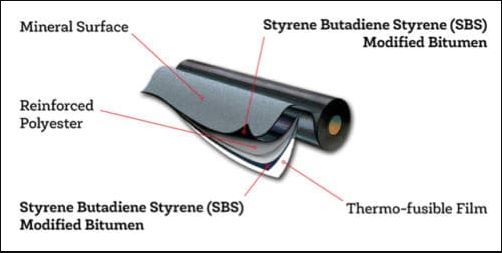
Source: restoremastersllc.
Modified bitumen roofing (MBR) offers several key benefits that make it desirable for many property owners, especially in harsh climates:
- Durable roofing options: With proper care, MBR is designed to last 20–30 years, offering long-lasting protection from the elements.
- Weather Resistance: This roof quality excels in harsh weather conditions, including heavy rain, snow, and intense UV rays, making it suitable for various climates.
- Flexibility: The addition of flexible materials such as rubber or plastic increases the flexibility of the MBR, allowing it to expand and contract without cracking as temperature changes.
- Waterproof roofing: MBR is a waterproof seal that effectively prevents leakage and water damage, essential for a flat, lightweight roof.
- Low Maintenance: Unlike other roofing materials, modified bitumen roofing requires minimal upkeep, saving time and costs over its lifespan.
- Cost-Effective: While slightly more expensive than traditional asphalt roll roofing, MBR offers good value due to its durability and low maintenance requirements.
These benefits make modified bitumen roofing ideal for residential and commercial properties seeking reliable and efficient solutions.
Which Type of Bitumen Roofing is Best for Extreme Weather Conditions?
Modified bitumen roofing (MBR) is the best option for severe weather conditions. This roofing option combines asphalt with transformative materials such as rubber and plastic, making it softer and more durable. It is particularly suitable for areas with high-temperature fluctuations and severe weather conditions. MBR is designed to withstand heavy rain, snow, and intense UV rays and offers better resistance than other types of bitumen roofs, such as asphalt roll roofing or self-adhesive options.
Why Choose Pally Roofing for Bitumen Roofing?
- Bitumen roof installation: Over 15 years of experience in professional roof installations in Garrettsville or nearby areas in Ohio.
- Premium Materials: We use top-grade roofing materials for unmatched durability.
- Customized Solutions: customized services for residential homes and commercial roofing projects.
- Comprehensive Roof Maintenance: Extend your roof’s lifespan with our expert care.
If you live in Garrettsville or nearby areas in Ohio, trust Pally Roofing to deliver exceptional, customized bitumen roofing solutions.
Conclusion
Bitumen roofing is a reliable and affordable option for long-term roofing solutions. Whether you need a new bitumen roof installation or roof maintenance, trust Pally Roofing in Garrettsville and nearby areas in Ohio for exceptional service.
Contact Pally Roofing Today! Let us help you protect your property with durable and efficient bitumen roofing. Schedule your consultation now!
Frequently Asked Questions!
What Are The Disadvantages Of A Bitumen Roof?
Bitumen roofs have a short lifespan (10-20 years), are susceptible to UV damage, and can soften in the cold or sag in extreme heat. Installation requires expertise, and the materials raise environmental concerns.
What Is The Life Expectancy Of A Bitumen Roof?
Bitumen roofs typically last between 10 and 20 years, depending on material quality, maintenance, and weathering factors.
What Is The Difference Between Asphalt And Bitumen Roofing?
Asphalt is a high-performance mixture of bitumen and aggregate, typically used on roads. Bitumen is durable insulation used to improve the flexibility and durability of roofing systems with modified versions.
Which Is Better, Bitumen Or Asphalt?
Bitumen is better for roofing because it is more flexible, waterproof, and durable than asphalt, mainly used for paving.
Is Bitumen Suitable For Roofs?
Yes, bitumen is suitable for simple flat roofing, especially the modified version, as it provides durability and weather resistance.
What Roof Lasts 100 Years?
Properly maintained, roofs made from slate, copper, and clay/concrete tiles can last over 100 years.
How Much Does A Modified Bitumen Roof Cost?
A modified bitumen roof typically ranges from $3 to $7 per square foot, depending on quality, installation complexity, and roof size.
How Long Do Bitumen Roofing Sheets Last?
Bitumen roofing sheets generally last 15 to 20 years, and their longevity is influenced by environmental factors and how well the roof is maintained.
Author
-

With more than 16 years of hands-on experience, Phillip Schmucker is the knowledgeable owner of Pally Roofing. His dedication to superior roofing services has earned him a reputable place in the industry. Phillip also shares his extensive expertise through writing, providing readers with practical tips and professional advice on various roofing topics. Follow him on LinkedIn.
View all posts


